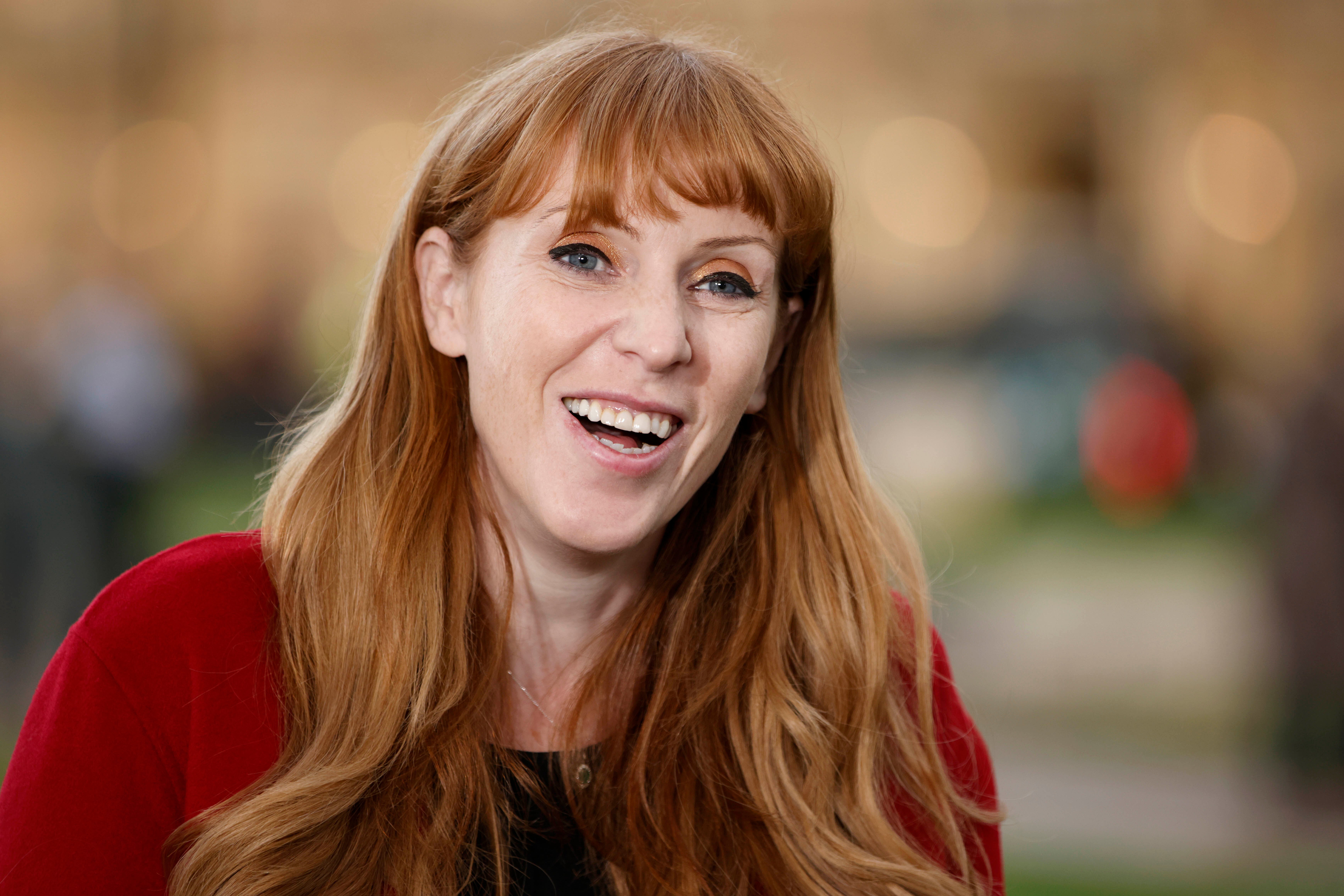Angela Rayner’s ‘boob op’ is the least interesting thing about her
MPs should be able to open up about their experiences and quirks, their flaws and hinterlands, without being made to regret it, writes Marie Le Conte


Writing a good profile of a politician is an art. The piece must be interesting but entertaining as well; there must be enough about policy and politics, but it cannot be too dry either. On the other hand, an interview only filled with fluff is of no interest to anyone. The secret lies in balancing these things out.
On Friday, the Financial Times published a wonderful profile of Angela Rayner. Jim Pickard took the deputy Labour leader out for lunch and, over the course of the meal, she revealed a number of things about both herself and her party.
For a start, she admitted to never having had a “particularly strong view either way” on Brexit, which puts her at odds with sharp Remainer Keir Starmer – a man who, by the way, she has saved in her phone as “Mr Darcy”.
On the topic of what might happen after the next election, Rayner made it clear that a “Labour government would ‘brutally’ resist union demands to give public sector workers inflation-matching pay rises of 10 per cent”, which feels like big news. Still, the party would “strengthen the unions and have good employment rights”.
Elsewhere in the interview, Rayner opines on the last three Conservative leaders, gives her frank views on the question of nationalisation, and addresses the comparisons people have made between her and John Prescott. Oh, and she mentions the cosmetic surgery she had on her breasts 12 years ago after she had lost her post-pregnancy weight.
Perhaps predictably, the latter is what ended up making the headlines at other outlets. In fact, it even made the Daily Mail front page on Saturday – “Angela Rayner: I spent £5,600 on a boob op” was the poetic way in which they put it.
Sky News also decided it was worth an entire piece, which they headlined “Angela Rayner borrowed £5,600 for cosmetic surgery after shedding ‘baby weight’”. In a bleakly telling admission of where their priorities lie, a line further down the piece read: “Ms Rayner spoke to the newspaper as part of a wide-ranging interview in which she also discussed the party’s chances at the next election.” Oh yes, that old thing!
Of course, all of this will be forgotten when, at some point in the next few months, Westminster decides to discuss once again the dearth of women wanting to enter politics. The debate comes back round at least once a year, and yet nothing ever really changes.
The papers write about the online abuse female politicians get, and the “boys’ club” of parliament, but they rarely stop to think about the role they play in creating such a hostile atmosphere. How can puerile coverage of anything relating to female bodies be anything but off-putting to those watching and considering joining the fray?
To keep up to speed with all the latest opinions and comment, sign up to our free weekly Voices Dispatches newsletter by clicking here
More broadly, it feels like a self-defeating game for all involved. Voters often say they want to be represented by politicians who feel like real people, but how can they come across as normal and human when anything personal they say is likely to be treated with a seriousness and gravitas worthy of sniggering schoolboys?
MPs should be able to open up about their experiences and quirks, their flaws and hinterlands, without being made to regret it. This doesn’t mean they shouldn’t be held accountable for their political decisions; merely that they can, and should, be treated as fully rounded people.
After all, politics isn’t entirely about policies; people vote for politicians whose values align with their own, and whose vision they find inspiring. Knowing the content of someone’s character can be as important as knowing about their ideological leanings.
Crucially, this information can only come out into the world if politicians feel confident enough to share it. It just isn’t clear that the current media ecosystem feels like a good place in which to do so. What a pointless, frustrating shame that is.




Join our commenting forum
Join thought-provoking conversations, follow other Independent readers and see their replies
Comments